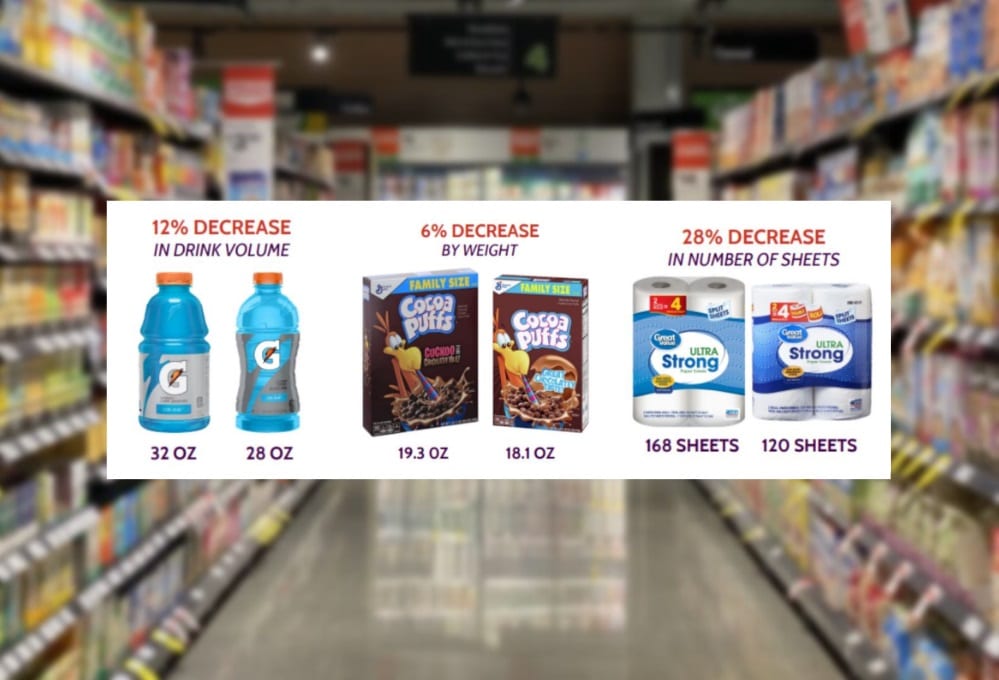Prices are rising, packages are shrinking, and several lawmakers say they’ve had enough. A U.S. Senator and eight of his colleagues have introduced legislation to crack down on “shrinkflation.”
Democratic Senator Bob Casey of Pennsylvania has introduced what he’s called the “Shrinkflation Prevention Act of 2024,” which would amend Federal Trade Commission regulations to outlaw shrinkflation and brand it “unfair or deceptive.”
Shrinkflation, Casey explains to the uninitiated, “is the practice of companies reducing product size while maintaining the same retail price.” Companies that surreptitiously shrink their product packages “seek to deceive consumers when they practice shrinkflation without clearly disclosing the size change and per unit price increase of a product,” Casey asserts. These are deceptive tactics, he alleges, which “allow companies to profit off unaware consumers, as academic research shows that consumers are less sensitive to changes in product size than to changes in price.”
For the past several months, Casey has been on the warpath against rising grocery prices, producing a series of reports criticizing corporate “greedflation.” Prices for everyday essentials began rising during the Covid pandemic, due to supply chain challenges and increases in companies’ own cost of doing business. But “big corporations took advantage of the crisis to prey on consumers,” he alleges, “raising prices by even more than necessary to cover increases in their costs, and hiding behind inflation and supply chain disruptions to do it.”
His bill would direct the FTC to “establish shrinkflation as an unfair or deceptive act or practice.” That would allow the FTC, or any state’s Attorney General, to instigate legal action against any company engaging in shrinkflation, and force that company to pay financial penalties and offer restitution to consumers. The legislation is cosponsored by Democratic U.S. Senators Tammy Baldwin of Wisconsin, Elizabeth Warren of Massachusetts, Jacky Rosen of Nevada, Cory Booker of New Jersey, Sheldon Whitehouse of Rhode Island, Sherrod Brown of Ohio, Patty Murray of Washington and independent Senator Bernie Sanders of Vermont.
It’s unclear in the wording of the legislation exactly how shrinkflation will be defined, and when an altered product package size will be found to have violated the law. Will companies never be able to reduce a package size at all? Or can they do so if they disclose it, and what form of disclosure will be deemed acceptable? Those details haven’t been worked out yet.
But Casey and his colleagues have pointed out several examples where, had their law been in place, shrinking product packages would have been considered illegal.
“In the case of Cocoa Puffs, General Mills reduced its ‘Family Size’ from 19.3 ounces to 18.1 ounces of cereal while charging the same price,” Senator Baldwin pointed out. “Frito-Lay also reduced the size of a bag of Doritos from 9.75 ounces to 9.25 ounces, while their profits increased 9 percent from 2021 to 2022.” And “Procter & Gamble, the makers of Dawn, reduced the formerly 7-ounce dish soap to 6.5 ounces but left the bottle the same physical size with the same price.”
One of Casey’s reports cited findings from the Bureau of Labor Statistics about which product categories are most affected by shrinkflation. Those findings showed that household paper products are most impacted – prices in that category are up more than 30% since pre-Covid 2019, with more than 10% of that increase attributable to shrinkflation. Other categories like snacks, candy, household cleaning products and coffee all rose more than 20% in price, with the Bureau estimating more than 7% of that was due to shrinkflation.
Some manufacturers defend the practice, though they might prefer to call it “downsizing” rather than “shrinkflation.” Selling smaller packs for the same price is actually preferable to raising prices, they argue, since cash-strapped consumers would rather not have to spend any more than they currently do, even if it means settling for less.
But the Senators who’ve proposed this bill aren’t buying it. “Corporations are trying to pull the wool over our eyes by shrinking their products without reducing their prices — anyone on a tight budget sees it every time they go to the grocery store,” Casey said in a statement. “Families are sick and tired of digging deeper into their wallets for their weekly grocery runs while corporate CEOs laugh all the way to the bank.” Senator Warren called it yet another example of corporate greed. “From Doritos to Oreos to even a roll of toilet paper, big companies are giving you less but offering the same or higher price,” she said in a statement. “Corporate executives thought we wouldn’t notice, but they’re wrong.”
A bill proposed by nine progressive lawmakers doesn’t stand much of a chance in a closely-divided Senate, where it may never come up for a vote. So don’t look for shrinkflation to become illegal any time soon. But now that these Senators have sent a message to companies engaging in the practice, it may be up to shoppers to send their own message, by voting with their wallets.
Image sources: Senator Bob Casey/Franki Chamaki on Unsplash














